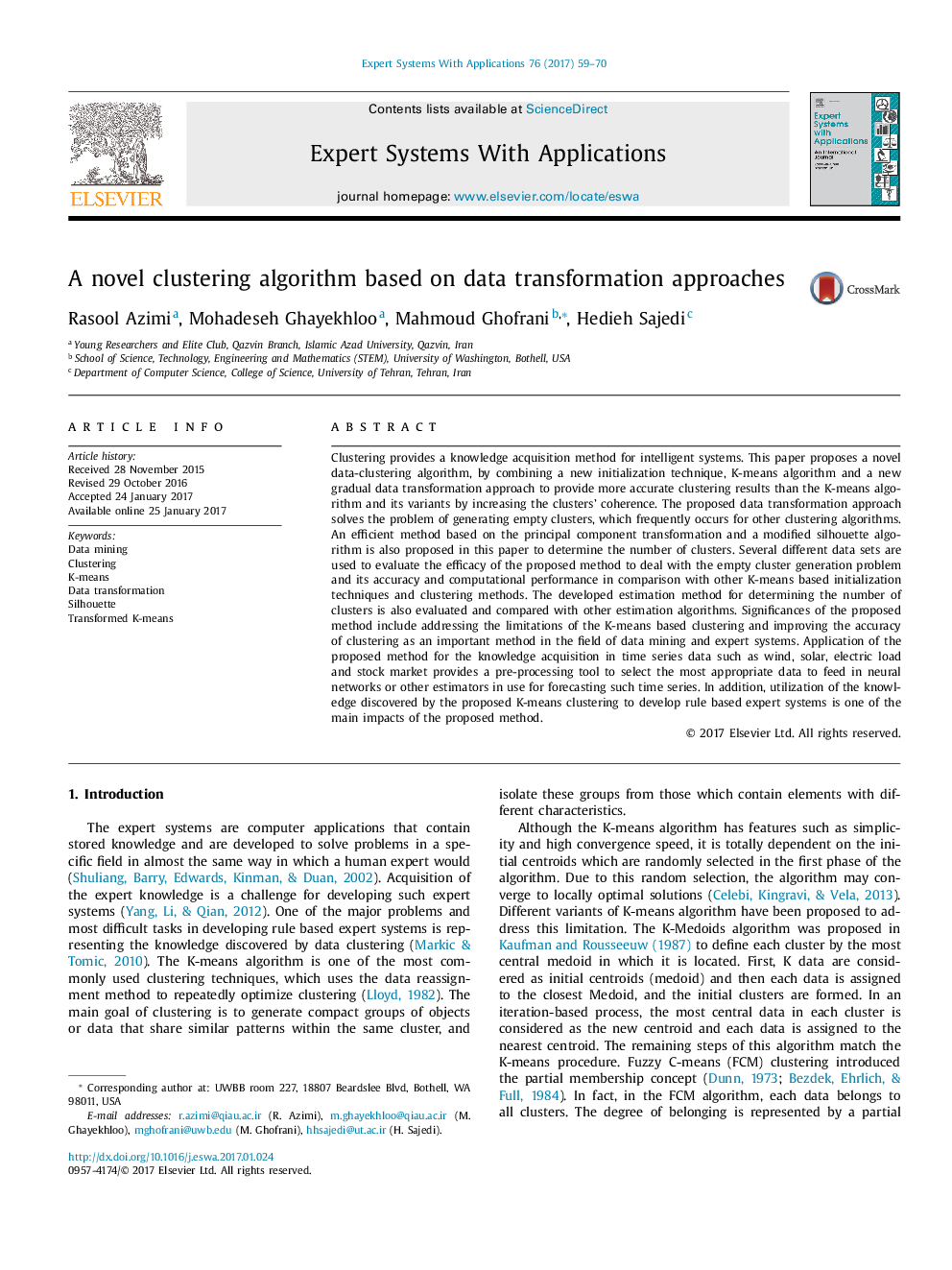ترجمه فارسی عنوان مقاله
یک الگوریتم جدید خوشه بندی مبتنی بر رویکردهای تبدیل داده است
عنوان انگلیسی
A novel clustering algorithm based on data transformation approaches
| کد مقاله | سال انتشار | تعداد صفحات مقاله انگلیسی |
|---|---|---|
| 150852 | 2017 | 12 صفحه PDF |
منبع

Publisher : Elsevier - Science Direct (الزویر - ساینس دایرکت)
Journal : Expert Systems with Applications, Volume 76, 15 June 2017, Pages 59-70

